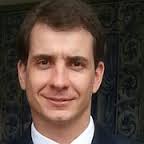
Alexandre Toledo Maciel
São Camilo Hospital, Brazil
Title: Anticipating acute kidney injury diagnosis using simple and easily assessed blood and urine biochemical parameters
Biography
Biography: Alexandre Toledo Maciel
Abstract
Early diagnosis of acute kidney injury (AKI) is a major challenge and a great area of research, particularly in critically ill patients. However, serum creatinine (sCr) and urine output (UO) remain so far the only two widely accepted and available parameters for AKI diagnosis, although they are clearly late markers of renal damage. Tubular damage markers have gained a lot of attention but none of them are widely available especially in developing countries and their roles are not clearly established in clinical practice. We have observed that some biochemical alterations in blood and urine occur in a standardized way during most AKI development, even before increases in sCr. Sequential assessment of urine sodium, urine creatinine and the fractional excretion of potassium are simple, low cost and widely available parameters that have a still under-recognized potential to help in the early detection of kidney impairment. Many controversies still remain in how to interpret their values especially after increasing evidence that urine biochemistry is not a tool for renal perfusion evaluation as suggested for decades in the classic “pre-renal” paradigm. More research is needed in order to optimize the use of urine biochemistry in AKI diagnosis and management.
